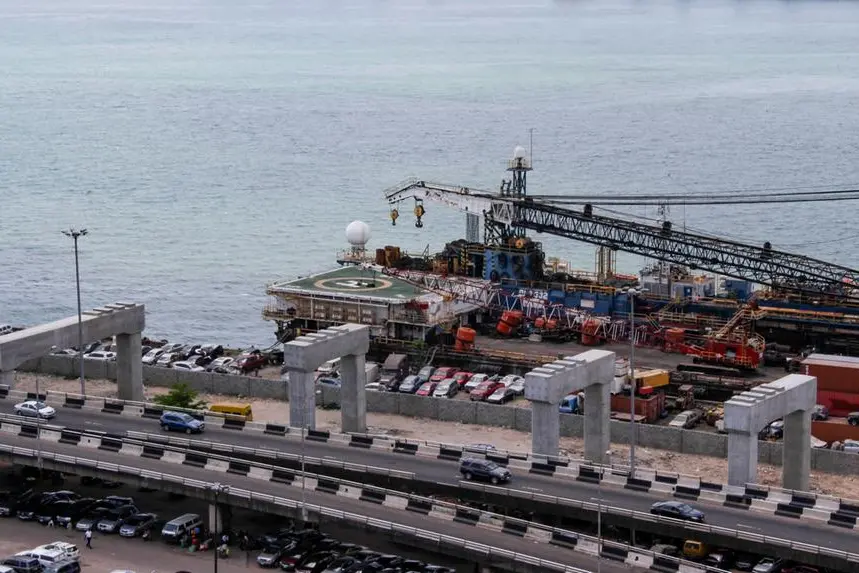PHOTO
Following incessant review of the nation’s exchange rate by the Central Bank of Nigeria (CBN), which has seen the Naira exchange to the Dollar at N1,413.62/$1 from N1,356.883/$1 at the weekend, investigations by the Nigerian Tribune have revealed that many importers have been forced to abandon their cargoes at the nations ports due to inability to clear them as a result of the very high Customs duty that has been slammed on these cargoes due to a skyrocketing and unpredictable exchange rate regime.
It would be recalled that the CBN on June 24, 2023, adjusted the exchange rate from N422.30/$1 to N589/$1 and on July 6, 2023, it was adjusted to N770.88/$1. On November 14, 2023, it was adjusted to N783.174/$1; on December 7, 2023, it was adjusted to N951.941/$1; on Friday, 2nd February, 2024, exchanged at N1,356.883/$1; while it currently changes at N1,413.62/$1.
According to data made available to the Nigerian Tribune by the Sea Empowerment Research Center, a group monitoring imports and export business in Nigeria, many of the cargoes being auctioned by the Nigeria Customs Service (NCS) are cargoes abandoned inside the ports due to very high clearance rate that was brought about by Nigeria’s rising exchange rate regime.
Related PostsImporters, exporters incur losses as exchange rate hike bites harderShippers’ Council promoting seamless movement of cargoes —AkutahImporters shun Lagos-Ibadan cargo rail over double handling charges
Speaking with the Nigerian Tribune exclusively, the Head of Research at the Sea Empowerment Research Center, Fwdr. Dr Eugene Nweke explained that many Chinese firms are currently chasing after many Nigerian importers who have defaulted in payment due to the unpredictable nature of the nation’s foreign exchange rate.
“You know Nigeria is an import dependent nation. As an importer, if you order goods and the duty payable is N6.5 million, and before the goods arrive here, the duty payable suddenly jumps to N9 million due to an unpredictable exchange rate like ours, how will you clear the cargo if you are not prepared?
“Let’s say you eventually cleared the cargo; will you sell at the normal rate that the commodity is selling at the market? This is the reason why the cost of goods and services at our markets is not stable. This is why the cost of goods and services at our markets is going up. Our exchange rate regime is unpredictable.
“Do you know that most of the cargoes that have become overtime cargoes at our ports and are now being auctioned are victims of our unstable exchange rate regime?
“I can give you numbers of importers who brought in cargoes when the exchange rate was at a figure. By the time the cargo came in and such importers opened Form M, Customs duty had gone up because CBN had adjusted the nation’s exchange rate. When these importers compared the value of what they imported and the value of what they were to pay as Customs duty, they couldn’t raise money from their banks.
“In the process of looking for money from different banks, the cargoes started accumulating demurrages and storage charges. By the time these importers were able to rally round and get funds, the value of Customs duty plus Storage and demurrage charges had far outweighed the value of what they imported. So these importers had no choice but to abandon the cargoes at the ports. We have data of these importers.
“Another problem our unpredictable exchange rate has caused is that it has made our importers to lack integrity in the face of their foreign partners. Many of these imports were ordered on credit, but with an unstable exchange rate, many importers have struggled to clear these cargoes, leading to many of them being chased for money by these Chinese firms.
“The unpredictable nature of our exchange rate has led to many companies folding up. From our research at the Sea Empowerment Research Center, 276 companies have folded up. We are not done with our research. When we are done, we will give the full number of companies that have folded up. But as of now, we can confidently say 276 have folded up due to Nigeria’s forex crisis,” Dr Eugen Nweke told the Nigerian Tribune.
Copyright © 2022 Nigerian Tribune Provided by SyndiGate Media Inc. (Syndigate.info).




















